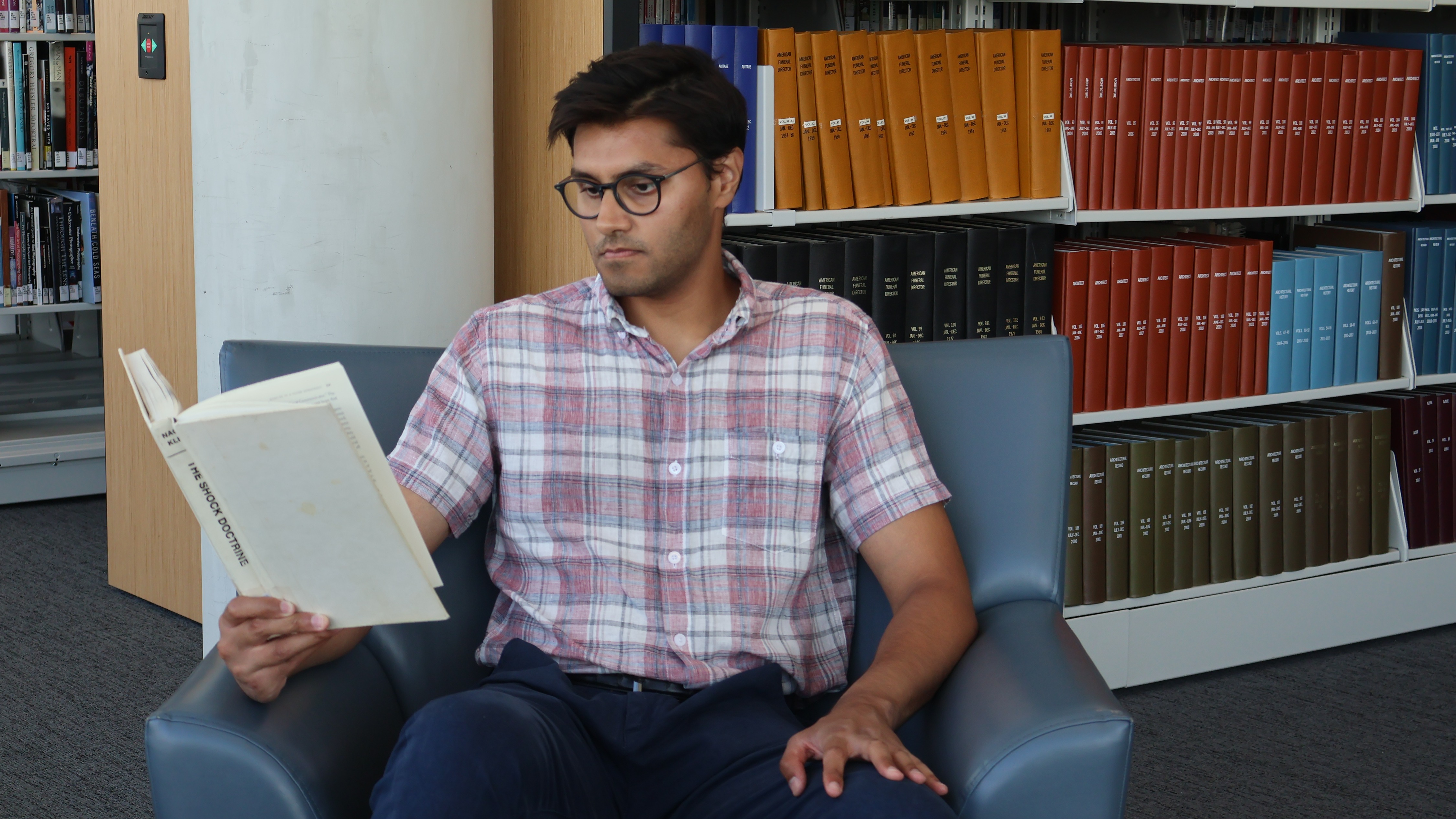
Usman Malik is helping students turn the pages of their academic careers. As the University of Guelph-Humber’s Liaison Librarian for Kinesiology, Psychology, and Business, he supports students in these programs with their research, citations, and how to use library resources.
Get to know the book lover and trivia enthusiast:
Q: Tell us the story about when you knew you wanted to become a librarian. How did you pursue this dream?
A: The realization that I wanted to be a librarian came relatively late in my undergraduate education at the University of Toronto. My post-graduation plans were mercurial; I didn’t quite know what I wanted to do, except that I wanted a career where it felt like I could make a difference in the community. I had a mentor who was an academic don at the University of Toronto. He was a graduate student in the Faculty of Information, pursuing a Master of Information, which is the accredited degree that is required to be a librarian in Canada. I had a very narrow idea of what being a librarian entailed, but my discussions with him really opened my eyes to the different possibilities, both in the types of librarianship and the kind of work a librarian does. As someone with a background in customer service, research, and advocacy, it dawned on me that librarianship was perfectly aligned with my skills and interests. With my mentor’s advice and blessing, I applied to the Master of Information degree program. After completing the degree, I landed at Guelph-Humber and have been privileged to be a part of this community ever since!
Q: What’s your favourite part about reading and researching?
A: My brain is a wasteland of trivia and useless facts, and I owe that in large part to reading and researching being core interests. On a slightly more serious note, I am a lifelong student and love learning new things, even outside my usual wheelhouse of interests. With both research and reading, I can continue learning by engaging with literature and expanding my frame of reference. I am lucky to have a job that incorporates both of these in spades!
Q: How do you help students in the Business, Kinesiology, and Psychology programs?
A: I primarily assist students in the Business, Kinesiology, and Psychology programs with research-based coursework. I visit classes to provide research sessions where I teach students the skills and strategies for effective research, citation, and how to use library resources. Students can also book one-on-one appointments with me where we can find information for their specific research interests.
Q: What’s a service the library offers that you wish more students were aware of?
A: The Idea Lab! The Idea Lab is our makerspace where students have access to media production, fabrication, and digital tools to, as the slogan goes, “make, create, and innovate”. Now, the Idea Lab is already very popular with Humber Polytechnic students, but this incredible resource is equally available to Guelph-Humber students as well. The Idea Lab could be used for any assignment involving the use of media production, for instance, like a podcast or video. There are also 3D printers. But it doesn’t have to be strictly for a class; use of the space for extracurricular activities and personal projects are welcome as well. The best part is that students do not have to be familiar with these tools beforehand. The lovely folks at the Idea Lab are more than happy to provide workshops and guide students through the use of the equipment.
Q: What’s the most rewarding part about working in an academic library?
A: Teaching students the critical thinking and information literacy skills that they will use, not only in their academic careers but in everyday life, is the most rewarding part for me. As educators, we are not only arming our students with the skills they need to succeed in their courses, but we are also imparting lifelong skills that will continue to serve them in the workforce and as informed citizens.
Q: What book are you reading now for pleasure and what’s it about?
A: The Myth of Normal: Trauma, Illness and Healing in a Toxic Culture by Dr. Gabor Maté, with Daniel Maté. As the title suggests, it’s a book about the causes of illness that stem from social factors emanating from our culture. This book is incredibly eye-opening as a health science-focused librarian because it challenges my understanding of health determinants and encourages the adoption of a more holistic model of health and wellness that places increased emphasis on social environmental factors and unconscious childhood traumas. The primary author, Dr. Gabor Maté, is a renowned Canadian physician, and the humanity that comes through his written work and public commentary is powerful and inspiring. This book is available at the library.

